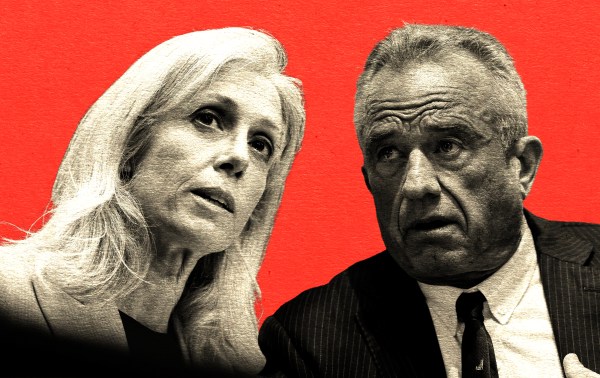Dear Reader (Including Conan, who is the goodest boy or girl depending on who you believe),
Imagine you’ve just sat down to Thanksgiving dinner and your cousin Mildred says, “Before we begin, I’d like to start a conversation.” She then takes out an index card and reads from it:
SisterSong defines Reproductive Justice as “an intersectional analysis defined by the human rights framework applicable to everyone, and based on concepts of intersectionality and the practice of self-help. It is also a base-building strategy for our movement that requires multi-issue, cross-sector collaborations. It also offers a different perspective on human rights violations that challenge us in controlling our bodies and determine the destiny of our families and communities.” What is your understanding of Reproductive Justice?
I can think of any number of reasonable responses.
“Who’s SisterSong?”
“How many Bloody Marys did you have?”
“Mildred, the gravy is already starting to congeal.”
I have an active imagination—just ask my Couch—but I am at a loss to come up with a plausible scenario in which any remotely normal person would slap the table and say, “Yes! It’s about time we introduced concepts of intersectional analysis into Thanksgiving!”
To be fair, Mildred—bless her heart and her many, many, cats—might have the situational awareness to bring this up before dinner was served. In which case, the most common response would probably be, “C’mon! The game is on! Get out of the way of the TV!”
That’s the world I want to live in.
But not the good people at the National Network of Abortion Funds, who want everyone to talk about abortion this Thanksgiving.
To that end, they provide a useful and printable compendium of “conversation starters” printed on “holiday cards” and—I defecate you negatory—the above passage is suggestion numero uno.
I like the idea that they thought this was the icebreaker most likely to help people ease into a conversation about abortion with people they acknowledge probably have absolutely no desire to discuss abortion.
I don’t want to talk about abortion either, by the way. I did that on Friday and hit my quota for a while.
But I do want to talk about talking about stuff like abortion over Thanksgiving.
Thanks But No Thanksgiving
I might not make fun of people who take the other side of the issue the same way. But I would be equally opposed to an effort by pro-life groups eager to turn Thanksgiving into a seminar about the unborn. Partial birth abortion is a horror in my book, but I can do without analogies to it during the carving of turkey.
I caught this tweet the other day
I think this is almost exactly wrong.
Think of it this way, on progressive terms, the people who are most in need of help from our political system are minorities, immigrants, et al. I haven’t conducted a methodologically rigorous survey, but I suspect that most African-Americans, Hispanics, immigrants, etc., would be even less likely to want to talk at length about SisterSong’s views of reproductive justice than your typical white family of privilege with a smattering of bachelor’s or graduate degrees around the table. A poor or lower-middle class white family has more need of help from our political system—again on progressive terms—than prosperous families (of any race). But, my hunch is they aren’t particularly inclined to turn Thanksgiving into a political meet-up either.
Allow me to pick on George Clooney for no other reason than it is convenient to do so. He’s rich, he’s attractive, he’s wildly famous and accomplished. He was born attractive and prosperous to be sure, but his success nonetheless was made possible by the very political system he’s often quite critical of. He has lots of skin in the game and, going by crude Marxist analysis, as I am wont to do, he should be interested in defending the system that helped him get where he is. And yet, he goes the other way.
Don’t get me wrong. That’s fine. We live in a democracy and people can disagree about how to make this a better country or world and, sometimes, Clooney is on the right side of the argument.
My only point is that politics is often most attractive and all-consuming precisely to the people who are immune to its consequences in their personal lives. Tom Steyer and Michael Bloomberg are pretty damned privileged. They could be off on private islands, hunting humans for sport or paying people generously to be human Stratego pieces. But for reasons that run the gamut from personal vanity to deep principle, they are very involved in politics.
From the French Revolution to the Russian and American radicals of the 1960s, political obsession has always been a popular pastime of the bourgeoisie, for good and bad. The kinds of people who would leap at the chance to debate different interpretations of intersectionality and reproductive justice aren’t members of the economic, gender, or racial lumpenproletariat, they’re people who’ve chosen to make politics their issue of ultimate concern.
I don’t begrudge them for it.
I do begrudge them their insistence that I must be just like them.
Politics as Identity
On the latest episode of The Remnant podcast, I talked to Yuval Levin about the problem of politics seeping into every aspect of our lives. I strained to make the point I wanted to make the way I wanted to make it, so let me try here.
A healthy society is a diverse society. I am not using diversity in the way many progressives do, though I am happy to do so to some extent (more on that in a minute). Let’s say, for the sake of argument, that you and I can agree that dogs are awesome and that owning dogs is the best thing you can do. That belief may be right or wrong—for us. But it is obviously wrong for other people. And that’s fine.
What would be wrong is to create a culture or political system that enforces our point of view on people who disagree with it. It would be bad for people unsuited for dog ownership to be shamed or forced into owning dogs. It would also be bad for dogs. Likewise, it would be bad—for humans and dogs alike—if the anti-dog people tried to force everyone into cat ownership.
Normally, when I talk about this, I talk about a diversity of institutions. What I mean by that is a diversity of places that people can draw meaning from. The Marines is a glorious institution and some people literally give their lives to it. I don’t just mean they die in its service, but they dedicate huge swaths of their waking hours to it over a career. That’s a good thing. But someone else might find everything about that life to be a source of oppression and misery. These people should not be Marines. But just because the Marine Corps isn’t right for some people doesn’t mean it should be available to others. The same principle applies to churches, clubs, sports, hobbies, careers, etc.
As Yuval noted, you run into trouble when every institution is expected to bend to one worldview, one way of thinking about the world. You may have a great definition of social justice, though I’ve never heard one. But I can be sure that even if I agreed with your definition, I would still think it’s wrong for some institutions, by which I mean it’s wrong for some people.
One needn’t be an extremist on this point. I’m not in favor—as a matter of philosophy or law—letting a thousand Nazi flowers bloom. I might argue that Nazi bowling leagues are legal, but I’d have no problem with other bowling organizations refusing to countenance them. And I’d certainly have no objection to the Pentagon banning soldiers from having Nazi meetings in the barracks.
In other words serious people can debate where to draw lines, but it is remarkably unserious to believe there should be no lines at all.
My problem with the Progressive approach to politics—increasingly mirrored on parts of the right—is the belief that there should be no lines. In total war, everyone is supposed to be part of the war effort at all times. Every institution isn’t supposed to be separate and apart, but a cell of the larger body politic. Thanksgiving, which is supposed to be about giving thanks to God or country or the universe (but mostly God) for the things you should be thankful about, is now an opportunity for political organizing and shaping minds toward commitment to the war effort—whether that effort is climate change or reproductive justice or even MAGA.
This reduces a precious institution to the—probably apocryphal—Willie Sutton quote about why he robbed banks: “Because that’s where the money is.”
If gatherings of humans are just an opportunity for campaigning, then those gatherings of humans lose that special meaning that brought people together in the first place. A woman tweeted the other day—and has since deleted—that her Thanksgiving rule is that everyone must first explain what they did to help Democrats win before they can come to her home. This is putting politics above not just faith but family and love. If everybody followed this rule, Thanksgiving would lose all that makes it special and society would be worse for it.
Most reasonable people understand that when Marines muster in the yard they do so because it is necessary in some way for their mission. If you busted out your “conversation cards” to discuss reproductive justice and intersectionality every time Marines gathered, you’d likely be escorted to the brig. But even the first time, someone would tell you, “This is not why we are here.” IImagine if a President Marianne Williamson or President Bernie Sanders said this sort of thing was no longer inappropriate but required. The Marines would no longer be an institution designed to create Marines, but just another opportunity to inject politics where it doesn’t belong. And very quickly people would stop joining the Marines.
Colonizing every school of thought and every institution to a single idea of the Highest Good—however defined—flattens society and destroys the kind of diversity we need.
This points to the problem of talking about institutions as safe harbors. They’re really portals, portals to paths that give individuals their own sense of meaning and belonging. That’s what the pursuit of happiness means. For some people that’s college. For others that’s the military. For some its parenthood or sports or plumbing school. And for most of us, it’s a whole bunch of portals because we don’t all have to be just one thing. When we say that everything has to be political we say we have to be political about everything. Politics itself becomes a form of identity politics.
Saying every portal should lead not just to politics, but one narrow vision of it, is like saying not only that everyone should go to plumbing school, but everyone should love plumbing and condemn others who don’t.
And that’s gross.
Various & Sundry
There’s no various & sundry today because, well, just because.
But if you can please go to TheDispatch.com and sign up for our wares if you haven’t. I’d be thankful if you did.







Please note that we at The Dispatch hold ourselves, our work, and our commenters to a higher standard than other places on the internet. We welcome comments that foster genuine debate or discussion—including comments critical of us or our work—but responses that include ad hominem attacks on fellow Dispatch members or are intended to stoke fear and anger may be moderated.
With your membership, you only have the ability to comment on The Morning Dispatch articles. Consider upgrading to join the conversation everywhere.